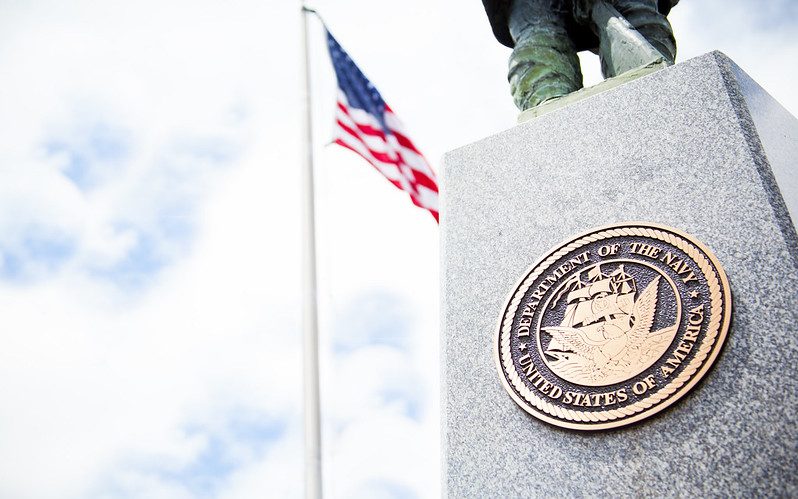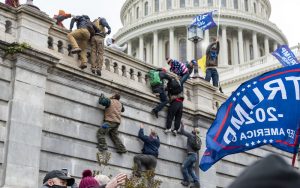The U.S. Navy SEALs have long been regarded as one of the most preeminent and effective special operations forces (SOF) in the United States. Having been born out of the Navy and Marine Corps’ Amphibious Scouts and Raiders in addition to the Naval Combat Demolition Units (NCDUs) and Underwater Diving Teams (UDTs), the U.S. Navy Sea, Air, and Land Teams (SEALs) were officially created in 1962 under President Kennedy with the goal of conducting Unconventional Warfare (UW) and other special operations against the North Vietnamese Army and the Viet Cong.
Since then, the SEALs have been involved in every major combat operation from Vietnam to the War on Terror. Their popularity and notoriety within society skyrocketed due to their primary involvement in Operation Neptune Spear in 2011, the operation which eliminated al-Qaeda founder and perpetrator of the 9/11 attacks, Osama bin Laden. Since then, countless films have been made showcasing both real life SEAL exploits and displaying fictionalized versions of the unit. Books by SEALs, most often memoirs, become bestsellers almost instantaneously and nearly any action-thriller or military fiction (along with the occasional romance) features a SEAL within it.
In the public’s consciousness, the SEALs are an incredibly professional force that carries out some of the most sensitive operations in the U.S. Armed Forces. However, the SEALs have a massive problem in maintaining the perception of a professional force.
The SEALs, in recent years, have displayed a serious problem in maintaining the level of professionality that is seen displayed in film, television, books, and other forms of media. The various SEAL teams have been investigated for alcohol abuse, sexual assaults, and heavy narcotics usage while in theater, posing such a serious risk to national security that the units had to be called home or certain soldiers had to be placed on leave. Other incidents involve the possible stealing of money while rescuing hostages and incidents of mutilation and unjustifiable killings throughout the War on Terror.
While most of these problems have only garnered interest in the military community, there are some instances in which the public has been aware of allegations of impropriety within the SEAL community. The public trial of SEAL Chief Eddie Gallagher for war crimes generated significant public attention, primarily due to President Trump’s commentary regarding the case. The entire case involving the death of a Green Beret in Mali by the hands of a DEVGRU (SEAL Team Six) operator also was widely reported in the media, yet generated little public outcry and has remained largely forgotten in the public’s consciousness.
These are serious problems within the SEAL community and pose a significant national security/defense risk. The recent news of over 30 SEALs being granted religious exemption from receiving the COVID-19 vaccine has further pushed forth the stereotypical view that many hold of the SEALs; unprofessional and combat ineffective.
Having a fighting force, especially one that takes on some of the United States’ most sensitive operations, conduct themselves in these ways is a risk to large scale military operations. These units are relied upon to undertake direct action and hostage rescue missions, Foreign Internal Defense (FID), counterterrorism operations, and a vast variety of additional special operations. Given that some of these missions, a hostage rescue being a prime example, are time-sensitive, having operators who are inebriated or hungover or are high on some form of narcotics could easily result in their being combat ineffective, prone to making tactical errors in the field or being understaffed while out on operations. This kind of activity places the operator themselves or other operators in danger of being severely injured or killed, the mission potentially being unsuccessful, or bystanders being mistakenly killed.
Not only does this behavior make a fighting force ineffective in carrying out their designated duties, it also results in potential strategic problems. If an innocent were killed while on an operation due to a SEAL’s being inebriated or high, the ramifications would be felt heavily within the community; any progress made by previous military units within the district, any pacification measures made would be lost. This same effect, the loss of goodwill and positive progress made with locals in a given province or district, is brought about when innocent persons or captured enemy combatants are murdered by U.S. Armed Forces personnel, instances that are abundantly clear with SEAL Chief Gallagher or back in 2010 (though substantial effort was made to try and rectify this misstep).
From an outside standpoint, this poses a great strategic risk to individual military operations and large scale counterinsurgency maneuvers. Furthermore, it can result in a decreased level of cooperation amongst the Special Operations Forces (SOF) community itself, with these SEALs who are unprofessional, prone to criminality, or otherwise are “problem children”.
Efforts were made in the past few years to try and solve these apparent problems within the SEAL community. Rear Admiral Collin P. Green, the commander of the U.S. Naval Special Warfare Command (NAVSPECWAR), went to great lengths to try and solve these problems, much like how Rear Admiral Brian L. Losey took efforts during his tenure from 2013 to 2016.
In July of 2019, Green wrote to subordinate SEALs blatantly stating, “We have a problem…I don’t know yet if we have a culture problem, I do know that we have a good order and discipline problem that must be addressed immediately…some of our subordinate formations have failed to maintain good order and discipline and as a result and for good reason [the culture of the Navy’s special operations forces] is being questioned”.
Over a month later, Green implemented many new procedures aimed at reforming the SEAL community. In his opening, Green wrote, “Our Force has drifted from our Navy core values of Honor, Courage, and Commitment and the tenets of our Naval Special Warfare Ethos due to a lack of action at all levels of Leadership. We have found that a portion of this Force is ethically misaligned with our Culture”. Green highlighted three main areas in which the SEALs needed to work on, these being Leadership, Accountability, and Direction. Green also enacted many standards, instituting a stricter regimen reminiscent of what would be expected within standard non-special operations units (e.g., the shaving of beards, no-more unauthorized patches on uniforms, mandated legal/sexual assault awareness courses, routine inspections). Some of these recommendations were previously theorized in a 2015 master’s thesis by Lieutenant Forrest Crowell, a U.S. Navy SEAL who formulated a playbook for resolving the many violations of the SEAL ethos that had been caused by Hollywood, the media, special interest groups, and individual SEALs and politicians. Despite Green’s commitment to reforming the community and bringing back professionality to the SEAL teams, his tenure would prove short lived.
Green, who frequently clashed with the Trump administration due to the President’s involvement in the Gallagher case, left his role as commander in September of 2020, handing over the reins to Rear Admiral Hyman Howard III, who vowed to “[make] clear that stewardship and accountability at every level is required to uphold our standard”.
Under Howard’s command, the SEALs saw “the number of [platoons cut] by as much as 30%” and “a new, intensive screening process…to get higher quality leaders”. He also “ordered force-wide testing of his SEAL teams” something that other SEALs had detailed to CBS as being “not routine [within the teams]”. This, coupled with NAVSPECWAR’s moving from a counterterror focus back to a sea-focused mission and the U.S. withdrawal from Afghanistan, shows a real desire to reform the community.
In spite of these steps in the right direction towards reform, there was some criticism from the general public on social media that these reforms would place pressure on mid-level SEAL officers and did little to address the cultural problems. However, what this shows is that US Navy command is serious about solving problems within the organization and working to better improve their special operators.
It goes without saying that the SEALs are integral to the SOF community. The vast majority of SEALs are highly trained, disciplined, proficient warfighters, and embody the SEAL creed and ethos in addition to displaying the “Quiet Professional” attitude. However, these other SEALs, both active duty and retired, who engage in activities that are anathema to everything the SEAL community stands for increasingly bring down the level of good work that is done by the majority.
In reforming the SEALs, steps must be made towards revamping the culture of the community and remaking the teams into a professional fighting force.
This must be done both internally and externally, as Crowell details in his thesis, writing, “[Internally,] in order for the SEAL Ethos to govern behavior once a SEAL leaves active duty service, SEALs must truly internalize NSW’s beliefs and values” in addition to apologizing for such films and works like 2012’s Act of Valor and Mark Bissonnette’s No Easy Day and establishing a workable system for placing qualified, ethical officers who work to hold their personnel accountable. Externally, Crowell writes, the Naval Special Warfare (NSW) community must assign “the current public affairs officer (PAO) a larger staff to handle NSW’s image full time [and] have the authority to officially respond to any and all SEAL- related reporting. Major news networks would then have a point of contact and an official representative willing to appear on camera to comment on NSW-related news… NSW would be driving the discussion, and the networks would have a reliable source to turn to rather than having to elicit from a SEAL-for-hire with an agenda who does not speak for the SEAL community”. Crowell also advises that an Ethics Board be staffed with active-duty SEALs and lawyers “dedicated to protecting NSW’s trademark, its image, and its proprietary information [and] monitor the activities of former SEALs who use the SEAL identity to turn a profit, especially when those activities create publicity”.
Additionally, one area that desperately needs changing is the training regimen for prospective SEALs. According to Military.com’s description of how to join the SEALs, “As a civilian, you can request to join the SEALs before enlisting through the SEAL challenge contract (seaman to SEAL program)…If you don’t get a SEAL challenge contract before enlisting, you still can volunteer to take the physical screening test (PST) during the first-week boot camp. If you successfully pass the PST, a naval special operation motivator will interview you”. Those being commissioned from an ROTC program or directly from the U.S. Naval Academy can be assigned to the SEALs without training in another Navy specialty. Those familiar with military special operations will know this is rather unconventional.
Normally, taking the Army as an example, a soldier must spend time in a conventional military unit (e.g., a company within the 82nd Airborne) before transferring to a special operations unit like the 75th Ranger Regiment or a group of the U.S. Special Forces (Green Berets). Finally, after a number of years with one of these units, then a soldier could be able to transfer to the Army’s Tier One special operations unit, 1st Special Forces Operational Detachment-Delta, the Army’s equivalent to the SEALs. To join Delta, one must be currently serving, “have at least 2.5 years of service left on enlistment and be within the E4-E8 ranks”; Delta as well has no civilian-to-service programs given they “are looking for experienced, mature operators to join”.
As one can see, the Army’s process is much different than the SEALs. Many SEALs, including Chris Kyle, Marcus Luttrell, Marc Alan Lee, Michael Monsoor, and Robert O’Neill, all joined the SEALs after completing A-School or coming in straight off the street. This kind of pipeline to join the nation’s premier special operations is something that would not happen with any special operations unit within the Army or Marine Corps.
While this process has been successful in producing many capable SEALs, this process can be detrimental. With the Army, soldiers would be exposed to the service’s culture and expected to follow rigorous standards while also understanding that they are one cog in a much larger machine, relatively unremarkable and similar to the many others like them. With the SEALs, they would be ingrained the thinking that they are a special operator, the best of the best as portrayed in film and television, and unlike any other. Naturally, this type of thinking can lead to problematic operators who do more harm than good to the entire profession.
In addition to Crowell’s recommendations, removing the civilian-to-SEAL pipeline would be of much benefit. It would allow prospective SEALs to gain an understanding of the Navy’s larger ethos, give them the feel of serving in a unit that abides by standards and regulations, and would allow the SEAL recruiting command to have access to additional information about a prospective soldier’s abilities, skills, and record.
As one anonymous SEAL told CBS News in April last year, “There are three groups in the teams. There’s a small group on one side that is evil. They’re lawless. There’s a small group on the other side that stands up to them. And then there’s a giant group in the middle that cowardly stays out of it, and they watch the evil guys railroad the good guys”.
Much like with law enforcement, sadly, a few bad apples spoil the whole bunch. The SEALs are making efforts towards reform and have performed quite admirably in doing so, yet, like with any organization in trouble, additional efforts are needed. Under Howard’s continued leadership and with more leaders focused on making a professional and effective fighting force, the SEALs can and will able to conduct themselves on par with other Tier One SOF units that experience fewer problems.
Alan Cunningham is a graduate of Norwich University and the University of Texas at Austin. He plans to join the U.S. Armed Forces as an Officer in 2022 and currently works with Ernst & Young. He plans to gain both a PhD in History and a JD.
The views expressed are those of the author and do not reflect the official position of the United States Military Academy, Department of the Army, Department of the Navy, Department of Defense, nor any academic or corporate institution.
Sources Baldor, L. (2021): Navy SEALs to shift from counterterrorism to global threats, AP News, https://apnews.com/article/politics-osama-bin-laden-china-russia-government-and-politics-8f277ce1a284b227afcdcffabfb51ffc Balestrieri, S. (2021): Neptune’s Spear: On This Day in 2011, Navy SEALs Kill Osama bin Laden, SOFREP, https://sofrep.com/specialoperations/day-2011-navy-seals-eliminate-osama-bin-laden/ Clark, J. (2021): We’re getting yet another Navy SEAL movie thanks to Tom Clancy’s ‘Without Remorse’, Task & Purpose, https://taskandpurpose.com/entertainment/navy-seal-movie-without-remorse-tom-clancy/ Clibanoff, M. (2019): ‘I Never Once Got Piss-Tested On Deployment’: SEAL Team 10 Members Test Positive For Cocaine, Law & Crime, https://lawandcrime.com/high-profile/i-never-once-got-piss-tested-on-deployment-seal-team-10-members-test-positive-for-cocaine/ Cole, M. (2017): The Crimes of SEAL Team 6, The Intercept, https://theintercept.com/2017/01/10/the-crimes-of-seal-team-6/ Crowell, F. (2015): NAVY SEALS GONE WILD: PUBLICITY, FAME, AND THE LOSS OF THE QUIET PROFESSIONAL, NAVAL POSTGRADUATE SCHOOL MONTEREY, CALIFORNIA, https://calhoun.nps.edu/bitstream/handle/10945/47927/15Dec_Crowell_Forrest.pdf?sequence=1&isAllowed=y Cunningham, A. (2021): A Miscarriage of Justice: The Pleaing of Tony DeDolph and the Elusion of Accountability, Jurist, https://www.jurist.org/commentary/2021/02/alan-cunningham-navy-tony-dedolph/ Department of the Navy (2019): Guidance from the Commander, http://cdn.cnn.com/cnn/2019/images/08/23/radm.green.guidance.directive.pdf Dyer, A. (2020): Admiral who led the SEALs during the Eddie Gallagher case headed to Special Operations Command, Law & Purpose, https://taskandpurpose.com/news/navy-seal-admiral-special-operations-command/ Herridge, C., Tepper, L., Bast, A. (2021): SEAL commander ordered force-wide drug testing as Navy resumes “normal” drug screening, CBS News, https://www.cbsnews.com/news/navy-seals-drug-testing/ Herridge, C., Tepper, L., Kegu, J. (2021): Navy SEALs tell CBS News “lawless” members plague teams with criminality, drug abuse and profiteering, CBS News, https://www.cbsnews.com/news/navy-seals-tell-cbs-news-alleged-criminality-drug-use-exploitation/ Lamothe, D. (2019): Navy SEALs kicked out of Iraq for drinking alcohol after reported sexual assault, officials say, The Washington Post, https://www.washingtonpost.com/national-security/2019/07/25/navy-seal-platoon-kicked-out-iraq-drinking-alcohol-while-deployed-officials-say/ Makichuk, D. (2020): Once proud Navy SEALs rocked by sex scandal, Asia Times, https://asiatimes.com/2020/08/once-proud-navy-seals-rocked-by-sex-scandal/ Military.com: Navy SEALs: Background and Brief History, https://www.military.com/special-operations/about-the-navy-seals.html Military.com: Navy SEAL Requirements, https://www.military.com/special-operations/requirements-for-navy-seals.html Military.com: Delta Force: Missions and History, https://www.military.com/special-operations/delta-force.html/amp Navy SEAL Museum: SEAL History: The Story of Naval Special Warfare, https://www.navysealmuseum.org/about-navy-seals/seal-history-the-naval-special-warfare-storyseal-history-the-naval-special-warfare-story Philipps, D. (2019): Anguish and Anger From the Navy SEALs Who Turned In Edward Gallagher, The New York Times, https://www.nytimes.com/2019/12/27/us/navy-seals-edward-gallagher-video.html Schifrin, N., Agha, A. (2010): U.S. Vice Admiral Apologizes for Afghan Deaths, https://abcnews.go.com/WN/Afghanistan/special-forces-apologize-afghan-civilian-deaths-sheep/story?id=10320603 Schogol, J., Hauptmann, M. (2022): Dozens of Navy SEALs may be the only sailors to get a religious exemption to the COVID-19 vaccine, Task & Purpose, https://taskandpurpose.com/news/navy-seals-covid-19-vaccine-religious-exemption/ Starr, B. (2009): Navy investigating missing money after pirate rescue, CNN, https://edition.cnn.com/2009/CRIME/06/01/pirate.rescue.missing.money/index.html Starr, B.: (2019): Exclusive: Top US Navy SEAL tells commanders in letter: ‘We have a problem’, CNN, https://edition.cnn.com/2019/08/01/politics/navy-seals-collin-green-service-members-misbehavior/index.html Szoldra, P. (2018): There have been nearly as many Navy SEAL books written as all other special ops combined, We are the Mighty, https://www.wearethemighty.com/articles/navy-seal-books/ Wesley, M. (2021): Twitter Status, https://twitter.com/wesleysmorgan/status/1387435282648158208?s=21








Be First to Comment